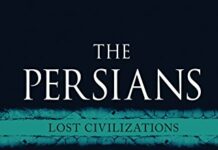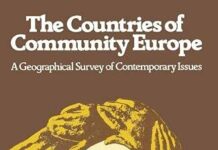
Ebook Info
- Published: 2013
- Number of pages: 904 pages
- Format: PDF
- File Size: 66.30 MB
- Authors: Geoffrey Parker
Description
Revolutions, droughts, famines, invasions, wars, regicides – the calamities of the mid-seventeenth century were not only unprecedented, they were agonisingly widespread. A global crisis extended from England to Japan, and from the Russian Empire to sub-Saharan Africa. North and South America, too, suffered turbulence. The distinguished historian Geoffrey Parker examines first-hand accounts of men and women throughout the world describing what they saw and suffered during a sequence of political, economic and social crises that stretched from 1618 to the 1680s. Parker also deploys scientific evidence concerning climate conditions of the period, and his use of ‘natural’ as well as ‘human’ archives transforms our understanding of the World Crisis. Changes in the prevailing weather patterns during the 1640s and 1650s – longer and harsher winters, and cooler and wetter summers – disrupted growing seasons, causing dearth, malnutrition, and disease, along with more deaths and fewer births. Some contemporaries estimated that one-third of the world died, and much of the surviving historical evidence supports their pessimism. Parker’s demonstration of the link between climate change and worldwide catastrophe 350 years ago stands as an extraordinary historical achievement. And the contemporary implications of his study are equally important: are we at all prepared today for the catastrophes that climate change could bring tomorrow?
User’s Reviews
Editorial Reviews: Review “One of the books I found most informative and most perversely enjoyable this year is Geoffrey Parker’s Global Crisis: War, Climate Change and Catastrophe in the Seventeenth Century. It deserves, and rewards, careful reading.”—Jane Smiley, Harper’s (Jane Smiley Harper’s)“Mr. Parker tells [the story] with verve. . . . [his] novel interpretation, emphasizing climate instead of individual agency, helps to explain socio-economic change and revolution in ways that future historians will inevitably have to take into account.”—Wall Street Journal (Wall Street Journal)“In his monumental new book . . . Parker’s approach is systematic and painstaking . . . giv[ing] us a rich and emotionally intense sense of how it felt to live through chaotic times.”—Lisa Jardine, Financial Times (Lisa Jardine Financial Times)Received an Honorable Mention for the 2013 American Publishers Awards for Professional and Scholarly Excellence (PROSE), in the European & World History category. (PROSE Awards American Publishers Awards for Professional and Scholarly Excellence 2014-02-07)Winner of the Society for Military History 2014 Distinguished Book Award for the best book-length publication in English on non-United States military history. (Distinguished Bok Award Society for Military History 2014-02-14)“Global Crisis is a magnum opus that will remain a touchstone in three areas for at least a generation: the history of the entire globe, the role of climate in history, and the identification of a major historical crisis in the seventeenth century. . . . Wide-ranging, monumental works of history are rare; this is one of them.”—Theodore K. Rabb, Times Literary Supplement (Theodore K. Rabb Times Literary Supplement)“In this vast, superbly researched and utterly engrossing book, Parker shows how climate change pushed the world towards chaos. . . . Parker’s book is not merely powerful and convincing, it is a monument to scholarly dedication.”—Dominic Sandbrook, The Sunday Times (Dominic Sandbrook Sunday Times 2013-03-24)“Global Crisis is the production of a scholar . . . who has reflected on what he knows long enough to take on the double task of synthesis and breakthrough. . . . Parker regales the reader with some wild and grim tales, interleaved with thoughtful reflections from those who lived through the crises. A more genial geode to disaster one couldn’t hope to find. We shall need more of these in the future.”—Timothy Brook, Literary Review (Timothy Brook Literary Review 2013-07-01)“[T]his monumental work by the distinguished historian Geoffrey Parker . . . is a formidable piece of scholarship that goes beyond it’s evident grand scale and ambition as a work of synthesis. . . . This book is scholarly and readable, bursting with fully documented examples and authoritative coverage of a vast swathe of 17th-century history, written on a broad canvas but accessible and compelling. It represents a worthy distillation of several decades of Parker’s scholarship, and should provide food for thought for academic historians and interested readers alike.”—Penny Roberts, BBC History Magazine (Penny Roberts BBC History Magazine 2013-06-01)“A must read that shows how climate change 350 years ago can serve as a harbinger of the possible human consequences of today’s rapidly changing climate. Essential. All levels/libraries.”—Choice (Choice)“A work of formidable erudition and scope from a renowned British authority on early modern history.”—The Financial Times (Financial Times 2013-11-30)“[A] brilliant and mulifaceted approach to the global 17th century.”—Robert E. Scully, S.J., America Magazine (Robert E. Scully, S.J. America)Winner of a 2014 British Academy Medal. (Medal The British Academy 2014-06-23)“This is a colossal book, literally and metaphorically. Reading it reminded me of the exhilaration of first reading Braudel’s Mediterranean and the Mediterranean World in the Age of Philip II. Parker’s book has the same combination of rich detail, global reach and a simple but powerful argument that can change how we see an entire period. Like Braudel’s, Parker’s writing is deft, vivid and rich enough to carry the reader along on the book’s grand tour of the chilly, conflict-ridden world of the ‘General Crisis.’”—David Christian, Journal of Military History (David Christian Journal of Military History)“It is rare that one reads a history book so compelling and so stimulating that one forgets to eat, but that was my experience with Geoffrey Parker’s magnificent Global Crisis, a magisterial, near 900-page study of the world in the 17th century that centres on the relationship between climate and human conflict.”—Paul Lay, History Today (Paul Lay History Today 2013-08-01)“Parker’s great book challenges all future political and military historians to integrate the study of tree rings and glacier cores into their work. And it challenges his readers to think hard about whether humanity in the 21st century will be any less vulnerable than it was in the 17th to sudden disruptions of the environment on which we depend for our subsistence fully as much as did our ancestors of 400 years ago.”—David Frum Atlantic (David Frum Atlantic)“Parker’s book amounts to a heady challenge for all historians of the early modern world, none of whom have put as much stock in climate variables, and few of whom can write about the big picture with the authority that he brings.”—J.R. McNeill, Public Books (J.R. McNeill Public Books)“This colossal study accomplishes something the epics of Gilgamesh and Noah never could; It convincingly links a truly global climate disaster to an epidemic of wars and rebellions that shook the whole world.”—American Historical Review (American Historical Review) About the Author The winner of the 2012 Heineken Prize for History, Geoffrey Parker is Andreas Dorpalen Professor of History and Associate of the Mershon Center at The Ohio State University. He lives in Columbus, OH.
Reviews from Amazon users which were colected at the time this book was published on the website:
⭐I love environmental history but have a limited budget. This used copy is in great condition, just a little cover wear.
⭐This book tells the story of the 17th century with its chaos, famine, revolutions, harsh weather and wars, and does in an all-encompassing look across the globe.Much of this story has been told before either in works focusing on individual areas, or as a whole.The premise underlying this retelling is that harsh and unusual weather/climate had a greater role in triggering the political upheaval than heretofore appreciated.There is no doubt that the climate was severe based on historical records and observations, and that it resulted in famine, population decrease etc.It’s a little less clear to what extent the climate triggered the political events. The author interjects the climatic variables into the historical story and suggests they played a role but at times it’s not clear whether the climatic effects were causal, correlated, or simply co-existed.So we hear that cold, heat, drought, floods played into the historical events, but in some instances they are interjected into the currency of the events, which is no more meaningful than to acknowledge that while the unusually early and cold winter halted Napolean’s and Hitler’s attempt to conquer Russia, that the winters were in any way causal of their invasions rather than correlated or co-existent.In most cases the author attempts to find and indicate causality but the lines do get blurred as to what was causal or coincidental, as the book repeatedly interject into the narrative that ‘it was the coldest, hottest, driest, wettest’ etc,; points out the disruption and famine that was undoubtedly caused by these changes and infers theeir connections as causative cause rather than an harsh but co-existent modifier of the events.When climate change was not associated with massive unrest (Japan e.g) the author relates that to a better organized government and less pressure on the food supply among other explanations…which seems to try to have the climate stor both ways, although those mitigating effects may indeed by true.It’s a historian’s prerogative to build and ‘theme’ the root causes of historical events… The historical events happen once but can have many interpretations… a la the dozens of books written about the precedents for say, the attack on Pearl Harbor or the causes of WWII.I don’t give the book less than 5 stars because of the thesis relating to the climate…it’s a little dense and dry at times to read as it covers the events of the century, and begins to get a bit repetitive..Overall, it’s a good account of the travails of that century with an interesting theme that has much to support the premise of induction by climate…but if you’ve read about the chaos of the 17th century in any other book you won’t get much more out of this than ‘it was the coldest, hottest, driest, wettest, drought stricken, volcano inflicted’ etc interjections, and you can add them yourself to your other readings, as they did occur…. but what they caused and with what they simply coincided or exacerbated is hard to tell.The author may have been better placed to focus on the exacerbation of the events by climate rather than reaching to causality…but it wouldn’t have been such a provocative new approach…which he is entitled to venture…
⭐The 17th century appears to be the most calamitous century ever recorded in history. The author does an excellent job of researching this century, its events and the impact and the analysis is also excellent.The author covers all the events of the 17th century, including the wars, the revolutions, the droughts, the major weather events, etc. Further, he lays out the impact of these events on the people who experienced it. Apparently, due to the events of this century, the population of the planet declined 33% with some areas experiencing even worse declines, e.g. China close to 50% and Germany.The reasons for this, the author claims, and provides an excellent rationale to support his conclusions, starts with the worst climate of recorded history. The 17th century experienced some of the coldest months and years on record, some of the driest months and years, some of the wetest months and years, etc. One of the main reasons, apparently, was due to the lack of sun spots. However, El Nino raised its ugly head also to impact the weather differently in different regions of the world.Further, instead of trying to help out their citizens, the 17th century had more wars and longer wars than another century in recorded history. There were only three years in Europe where a war was not being fought. And, there was the 30 years war that totally depopulated parts of Germany and which is still consider by many Germans to be the most calamitous period of German history (even beyond WWII). And, then there was the overthrow of the Ming dynasty in China that resulted in a huge depopulation of that country.And, these wars, droughts, etc., and the resulting hunger and crushing taxes, resulted in rebellions and revolts. The most recognized one is the English Civil War (and Cromwell) which resulted in the only time that the English executed their monarch, King James I. But there were many others, including many parts of the Spanish empire, including Barcelona, Portugal and Naples. These revolts appear to have caused the start of the decline of Spain.To me, much of the book was new and interesting. However, this is a long and can be challenging read. And, the author often takes direct quotes from first persons, especially English, and these comments are horribly misspelled making it even harder to read. Finally, the conclusions – linking the 17th century to today was a stretch. We don’t have anywhere near the amount of wars and revolutions occurring and we have the United Nations as a forum to handle these issues. And, whether we are as unprepared for climate change is arguable.In spite of some the challenges, I do recommend this book for anyone interested in history. To me, this was worth the investment in money and time.
⭐This book is a tough slog, and requires a lot of attention. I reread a lot of it. But the archeological data used to support statements about a century in the distant past made it more palatable for me.
⭐So far I’ve been dipping between reading the epilogue and starting at the beginning. So far some very compelling arguments presented on the effect of climate on human behaviour in the broad. As a fiction author with a thirst for accuracy, I’ve been logging the weather from various sources in my usual period, 1775-1820 in Britain which is enough of a challenge, and wondering how much effect the climate change of the Dalton Minimum had, and I am now inclined to consider looking at it more closely.Having recently been studying Polish history to follow up a wild interest in winged hussars, I bought this book which was recommended by a friend, and it is a tremendous help, and explains a passage in Henryk Sienkiewicz’s novel ‘Potop’ in which King Jan II Kazimierz Wasa makes the famous Lwów oath in April when there is hard frost. That this is a world-wide study is mind-blowing and I salute the author for dedication and scholarship.
⭐This is a voyage into Braudelian history as a world full (by the contemporary standards) of people collides with climate change. The book’s strength is looking not only for the similarities across cultures but the differences. How Japanese rulers reacted compared to the Qing is very informative as is the effect on Latin America where populations were comparatively low after the various post-Conquistador policies and epidemics. The question of whether the plague of revolts, rebellions and revolutions was caused by the Little Ice Age or was already in process is less easy to answer. There was clearly a growing difference between an increasingly educated underclass and a governing class used to rule by fiat (especially where it lacked the apparatus to rule properly). Later in the “long 17th century” after the many bloodlettings the propensity to revolt reduced, was it a Hobbesian reaction to chaos or simply the result of less people sharing the same resource.This is a book that makes you think and want to discuss, and it will not be the last word.
⭐I was impressed by this book. Geoffrey Parker manages to paint the history of the 17th. Century in a way which manages to bring together so many different regional strands without forgetting the major core events of the time. The style is quite approachable without lacking unapproachable rigour. One was left with the impression that the Century impacted negatively on ALL parts of the world. I was able to link the chaos of Britain with that in so many other regions, in the same timeframe. A pity that my GCE syllabus wasn’t so compartmentalised:I might have chosen History for my degree!
⭐The scope of this book is quite extraordinary and the scholarship involved somewhat intimidating. A detailed insight into events that few appear to be aware of but which have contributed to shaping the world we live in. There are lessons to be learned for the survival of mankind but whether they will be observed is open to question. In spite of its length and the detail I found it an absorbing and easy read although I struggled with the pronunciation of Chinese and Japanese names. If your interest is in history and you are curious as to how we have managed to survive this long then you should read this book.
⭐Decent thesis but waaaay too long. Lots of superfluous chapters. First part was good I gotta admit, but should have stopped there.
Keywords
Free Download Global Crisis: War, Climate Change and Catastrophe in the Seventeenth Century in PDF format
Global Crisis: War, Climate Change and Catastrophe in the Seventeenth Century PDF Free Download
Download Global Crisis: War, Climate Change and Catastrophe in the Seventeenth Century 2013 PDF Free
Global Crisis: War, Climate Change and Catastrophe in the Seventeenth Century 2013 PDF Free Download
Download Global Crisis: War, Climate Change and Catastrophe in the Seventeenth Century PDF
Free Download Ebook Global Crisis: War, Climate Change and Catastrophe in the Seventeenth Century





